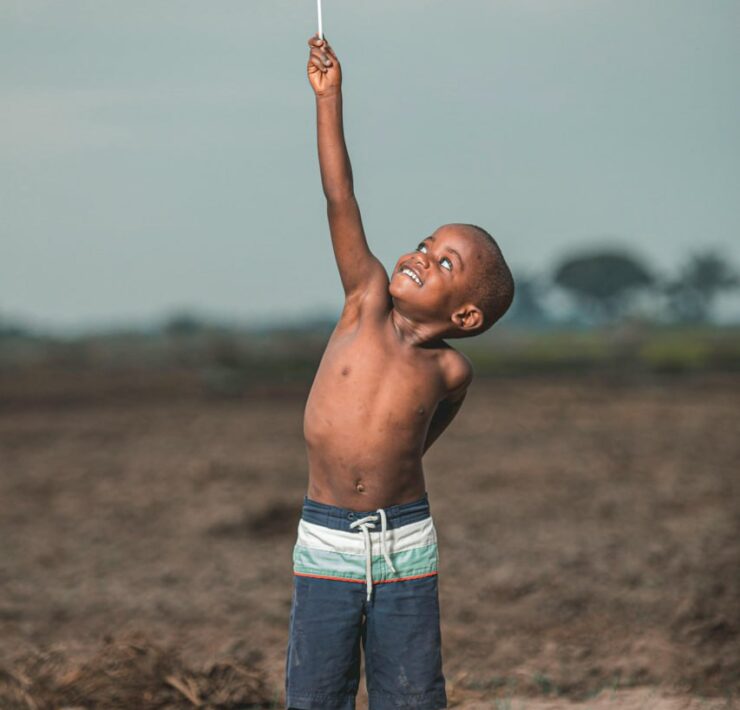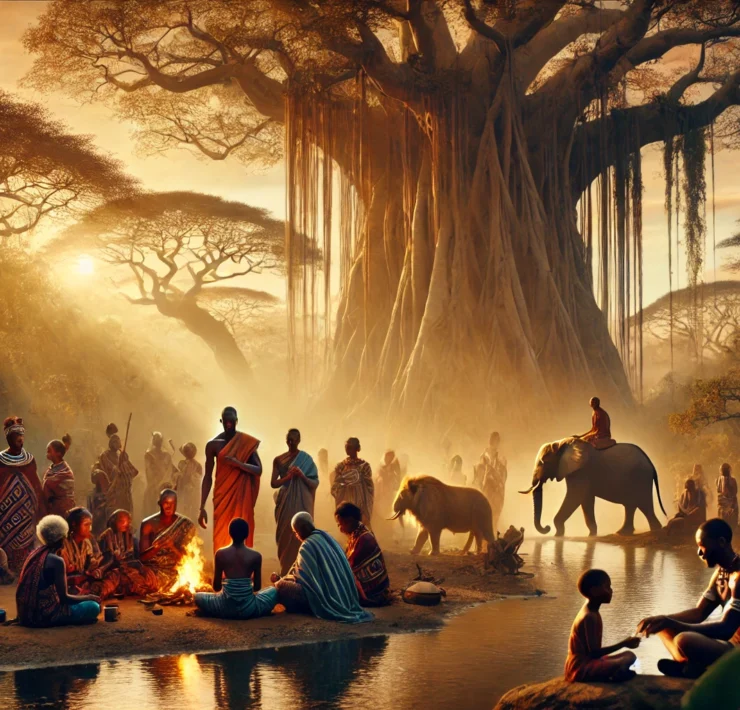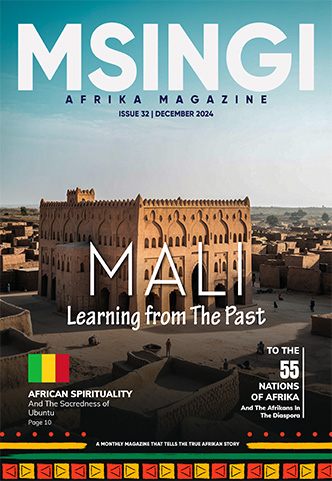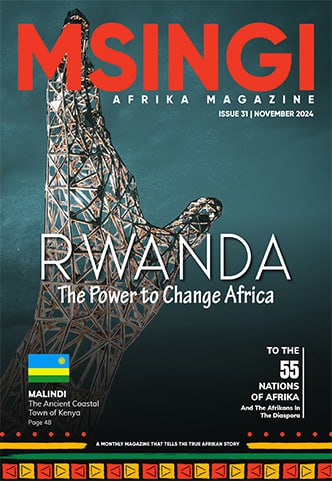
Samuel Phillips is a writer, graphic designer, photographer, songwriter, singer…
Read Next
As long as a man has breath in his lungs and talent in his heart given to him by God, he is a leader; irrespective of whether he is known or not, ever seen or never seen. He bears in his heart that which instantly puts him in the place of someone holding in trust something of which his life will be questioned by the One who graciously gave him such gift.
It is expected that every leadership role is that of service and a responsibility to the bigger picture. And with that bigger picture comes accountability, for which reward will be given either for a job well done or a job well-deserving of shame and pain.
The Bible is loaded with various proverbs that I believe are really very important for our lives right now. I will use one such proverb to create context for this article and then narrow it down to how lack of the true heart of responsibility and accountability has been the major barrier to a better Afrika.
I will use a very profound proverb that Jesus used in Luke 16:1-12 and thereafter break down a few things for deeper understanding.
He also said to His disciples: “There was a certain rich man who had a steward, and an accusation was brought to him that this man was wasting his goods. So he called him and said to him, ‘What is this I hear about you? Give an account of your stewardship, for you can no longer be steward.’
“Then the steward said within himself, ‘What shall I do? For my master is taking the stewardship away from me. I cannot dig; I am ashamed to beg. I have resolved what to do, that when I am put out of the stewardship, they may receive me into their houses.’
“So he called every one of his master’s debtors to him, and said to the first, ‘How much do you owe my master?’ And he said, ‘A hundred measures of oil.’ So he said to him, ‘Take your bill, and sit down quickly and write fifty.’ Then he said to another, ‘And how much do you owe?’ So he said, ‘A hundred measures of wheat.’ And he said to him, ‘Take your bill, and write eighty.’ So the master commended the unjust steward because he had dealt shrewdly. For the sons of this world are more shrewd in their generation than the sons of light.
“And I say to you, make friends for yourselves by unrighteous mammon, that when you fail, they may receive you into an everlasting home. He who is faithful in what is least is faithful also in much; and he who is unjust in what is least is unjust also in much. Therefore if you have not been faithful in the unrighteous mammon, who will commit to your trust the true riches? And if you have not been faithful in what is another man’s, who will give you what is your own?
A little breakdown
I want to interpret this proverb from the perspective of an Afrikan speaking to Afrikans and with the intention of creating a scenario by which Afrikans can begin to question things, especially as they relate to the welfare of Afrikans in Afrika.
My first question is this, do you as an Afrikan know that every politician serving in any Afrikan country, from the lowest to the seat of the presidency are your employees and servants because you voted them into power? And do you know that each and every one of them is supposed to be accountable to you? Let me leave you for a moment to think about that.
I have been watching the Afrikan political space for a while now from every direction of the Afrikan continent and one thing that I keep seeing are a group of heads of state and government, leaders, politicians, ministers, governors, senators etc. that are very confused about what it means to be a leader and whose inner agenda is to lay up goods for themselves and their immediate families, at the detriment of the very people (the employers) they were supposed to serve. They make selfish economic policies and decisions that ended up being nothing but the wastage of the resources that belong to the people. They say that they are fighting corruption but they are seated at the top of the very empire that money from corruption built while thinking the people they are leading will forever be fools.
And just like the wasteful servant in the above proverb, these leaders use the names of their employers (their people) to borrow money from foreign governments and international financial entities at unreasonable interests rates, steal the very money they borrowed and then flog their people to pay more taxes to offset the very loans that they collected and which they stole. Nothing is as wicked as this.
But how foolish are these weak and corrupt leaders who keep forgetting that there is another Leader who is watching every man’s work and who is also very just in His judgment and who has the very right to say “Give an account of your stewardship, for you can no longer be steward.’
In Afrika, it seems that leadership roles are given to people, not because they are worthy of such roles or qualified to sit on such seats, but because their predecessors need them to hold and keep their business going on. For instance, an Afrikan president, after ruling for eight years and after all the stealing and looting that has taken place in his administration, will do all to bring in someone who will make sure he is not prosecuted for his corruption and who will also keep his “legacy” in a good light, even when in reality he did nothing worthy of such good light. So it’s the same thing as saying “I cannot dig; I am ashamed to beg. I have resolved what to do, that when I am put out of the stewardship, they may receive me into their houses.’
He who is faithful in what is least is faithful also in much
Faithfulness to a person or a people is one way of knowing a man or woman with a true heart of leadership. It is not possible to be a good leader and be unfaithful to an ideal that leads to a better life for those who are being led. So basically, when you hear people in positions of power, whether in government or corporate organizations, talk about how good a leader they are, the proof should be in the life of the people and not in their words. What proof can most Afrikan leaders give for their leadership, especially, when after sixty years of independence, Afrikan nations are still living like they were never freed from slavery and colonization? The fruit is still the only way to tell the good that is in a tree. And because the principle is about faithfulness in the least that leads to faithfulness in much, men who are not faithful to little things in their care, will never rise to handle bigger things.
Therefore if you have not been faithful in the unrighteous mammon, who will commit to your trust the true riches?
One of the many lies we have told ourselves over time is that life ends here. Not at all, it doesn’t end here. Everything man is given to take care of here on earth is just like a test of discipline for how much they can take care of eternal things. When God gave Adam and Eve the assignment to tend and keep the garden, which is a physical thing, it was a test of how much they could handle of spiritual things. And without me having to go too much into theology, because they failed in faithfulness to the physical part of their assignment in the garden, when God, who happened to be their spiritual assignment, came into the garden in the cool of the day, they could not face him and thus they failed. He who is faithful in the physical will certainly be faithful in that which is spiritual.
True riches are eternal blessings that God gives a man and for which he is remembered even after he is long dead. For example, Abraham was blessed of God with the reality of the fatherhood of God Himself on the earth, and as scriptures say, even in heaven, he is still called “father Abraham” and by whose life, the entire family of the earth is blessed by God. Another example is King David, who was blessed with the sure mercies of God on earth and on whose throne, the coming Jesus will sit on earth. These are blessings or true riches that go beyond the foolish money and wealth that people gather from corruption and which have no value after death. When will leaders begin to think of what their legacy really is in the light of eternity and life after death?
And if you have not been faithful in what is another man’s, who will give you what is your own?
God is the One who really repays men for their faithfulness or unfaithfulness. And to tell you the truth, leadership of any sort is not excepted in the reward system that God has put in place. It does not matter if you are a president of an Afrikan nation or a CEO of a company or the leader of a family, your true riches and reward do not come from your salary or allowances, but from God who is the Leader of us all. If men are aware of this truth, just maybe they will tread a little bit more softly when dealing with the people, nations and organizations they lead.
What kind of life have we created?
Our world has become quite a small place to live and frankly speaking, it is a village. But this village has also become the very opposite of what village life looked like in pre-internet Afrika. A village for an Afrikan is the place where everyone is friend and brother to everyone; a place where everyone watches over the goods and benefit of others. A place where one person’s happiness is the happiness of the whole community. A place where the Ubuntu life of “I am because you are”, is the foundational principle of life, living and community.
We have succeeded instead, in creating a parasitic society and system in which those who have mastered the dark art of stealing and looting are given positions of power and authority, while those who live honest lives and whose life’s purpose is the good of all are seen as slaves to the system. In fact, we call them, common men or common citizens. We have placed our priorities in all the places except where they are most needed for the betterment of the people.
One question I keep asking myself is this; will it not be a good feeling if a leader created a better society for his people of which good things can be spoken about him even after he is gone? I believe it should be. Personally, why should I be a leader and then not be excited about creating the best opportunities for the people I lead? It does not make any sense to me why I should not be.
Recently, news went out in Kenya about how billions of shillings donated for the fight against Covid-19 went missing. I mean hundreds of billions of shillings donated to help those in need due to the pandemic. Ahgggg…it is annoying and deadly painful, to say the least. It’s both a shame and a slap on the face of the leadership and the spirit of integrity. Even if men have lost the ability to be ashamed of stealing the goods that belong to the public, should they also not have some level of dignity even while stealing? If you must steal since it’s in your DNA to do so, should you not steal with some dignity and concern for those who are suffering because the money meant for their upkeep is not getting to them? Even though stealing and dignity do not have anything in common, just permit me to use both in the same line of thought, just maybe someone will gain some sense. Afrikan Presidents swear with all their energy that they are bent on fighting corruption, but most of the government tenders that sucked up bunches of missing money were given to their families and friends. Who are you guys deceiving with your fight against corruption when both your pantry and your cooking pots have all the food meant for the masses? You can deceive the people; will you also deceive yourself and your Maker, who watches both the oppressor and the oppressed?
In as much as I do not recommend violence of any sort, but one thing the coup in Mali should teach every Afrikan government or President is that, even if you think you can hide behind the delusional titled of Commander-in-Chief of the armed forces, remember that the members of the armed forces that you are commanding all have wives, husbands, children, brothers, sisters and family members. And the truth is that, if your leadership stinks to your people, the families of your soldiers are a part of those people and one day, your so-called soldiers and police that take orders from you will turn to support their oppressed families and kick you out and the only thing that will be left for you to command will be the rats in whatever jail or grave you find yourself.
Leadership is about responsibility and accountability. To not have both is nothing but waywardness.
Subscribe now for updates from Msingi Afrika Magazine!
Receive notifications about new issues, products and offers.
What's Your Reaction?
 PIN IT
PIN ITSamuel Phillips is a writer, graphic designer, photographer, songwriter, singer and a lover of God. As an Afrikan content creator, he is passionate about creating a better image and positive narrative about Afrika and Afrikans. He is a true Afrikan who believes that the true potential of Afrika and Afrikans can manifest through God and accurate collaborations between Afrikans. Afrika is the land of kings, emperors, original wisdom, ancient civilizations, great men and women and not some road-side-aid-begging poor third world continent that the world finds joy in undermining.






















